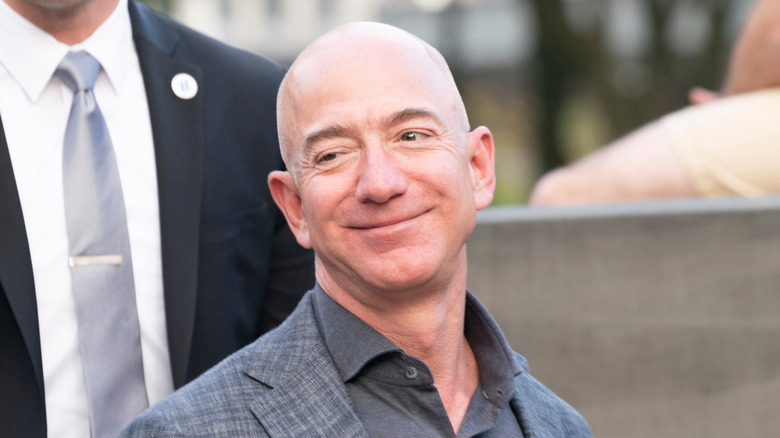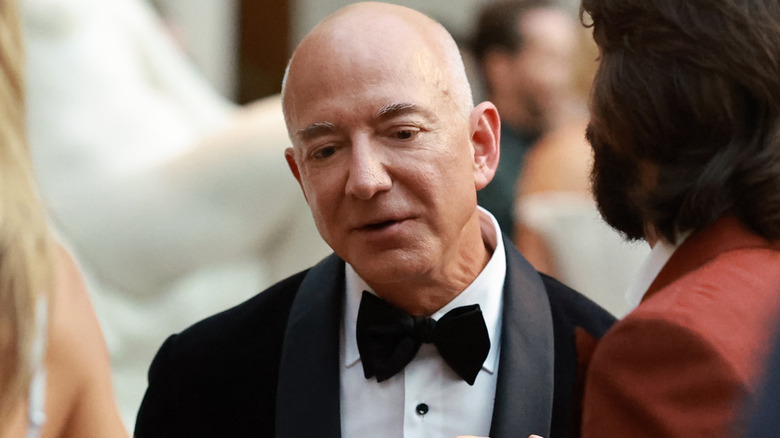The Jeff Bezos And Washington Post Drama, Explained
The 2024 presidential election cycle has already had plenty of twists and turns, from tension between Joe Biden and Kamala Harris to empty Trump rallies, but now The Washington Post finds itself in some hot water with readers and employees. The Post announced it would not be endorsing a presidential candidate, breaking a tradition that has lasted since 1988. Publisher and CEO William Lewis wrote the original announcement in an October 25 op-ed, saying that the decision to not endorse a candidate was a "return to their roots" and that they would not be endorsing a candidate in the future either.
This announcement earned widespread backlash from readers. Critics of Donald Trump were the loudest, with Martin Baron, former executive editor of The Post, describing the decision as "cowardice" and "spineless" on X, formerly Twitter. The Washington Post's owner, Jeff Bezos, also released a statement intending to defend the newspaper's position. He wrote, "Presidential endorsements do nothing to tip the scales of an election. No undecided voters in Pennsylvania are going to say, 'I'm going with Newspaper A's endorsement.' None. What presidential endorsements actually do is create a perception of bias." He also went on to say that the decision was an attempt to re-establish trust with readers. Unfortunately, on the same day that The Post revealed its refusal to endorse, there was a meeting between Donald Trump and the CEO of Bezos' company, Blue Origin, leading to widespread accusations of conspiracy.
A report by NPR stated that in the days since The Post announced they would not endorse a presidential candidate, over 200,000 people have canceled their subscriptions. It remains to be seen what impact The Post and other news outlets refusing to endorse candidates will have on the 2024 presidential election.
The drama is internal as well
The Washington Post isn't just dealing with backlash from readers supporting one side or another; they also have drama stirring up within their own ranks. Robert Kagan, the Post's editor-at-large, resigned from his position on Friday. In an interview with The Daily Beast, Kagan stated, "Trump waited to make sure that Bezos did what he said he was going to do and then met with the Blue Origin people, which tells us that there was an actual deal made, meaning that Bezos communicated, or through his people, communicated directly with Trump, and they set up this quid pro quo."
Twenty-one columnists for The Washington Post also signed a dissenting op-ed that said it was "a terrible mistake" by the paper not to endorse a presidential candidate. This came on the heels of an article published in the Post that said the paper's editorial board was set to endorse Kamala Harris but that Bezos blocked the endorsement from going out. The Washington Post has backed a Democratic Presidential candidate every election since 1976, except for the 1988 election.

